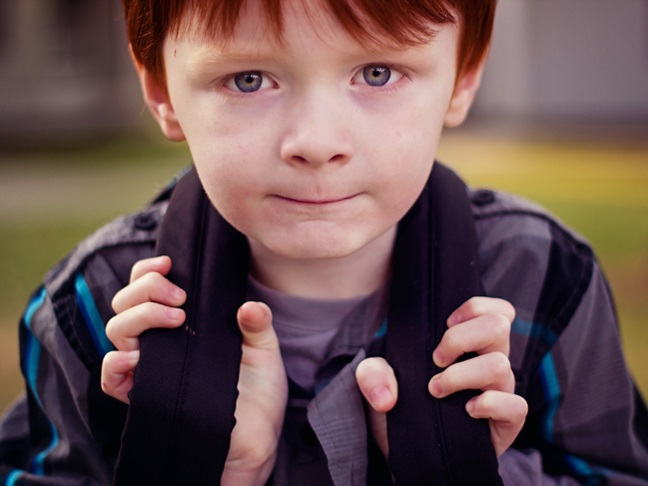The start of full day preschool may bring mixed emotions. Your preschooler may feel excited about growing up and starting school, but at the same time anxious about embarking on a new experience where she’s not quite sure what to expect. You likely feel the same way.
As you get ready for her first full day preschool experience, follow these 7 tips the help you both prepare:
Role Play. Use play as an opportunity to explore the concept of preschool. Take turns being the teacher and student. Use her favorite stuffed friends to act out scenarios, like what to do if you have to go to the bathroom. You’ll also want to play preschool lunch to give her a chance to become familiar with hew new lunch box. Use role play to discover how to ask a teacher for help, asking a child to play and saying no thank you when another child does something she doesn’t like.
Read Books. A quick trip to your local library and you’ll leave with an armful of books about starting preschool. First Day Jitters by Julie Danneberg, I Am Not Going to School Today by Robbie Harris and The Berenstain Bears Go to School by Stan and Jan Berenstain are books your preschool child will easily relate to.
Normalize the Schedule. Get into the swing of the school year by ensuring your child gets to bed at a reasonable time and gets up early enough to get ready for preschool. Preschoolers require 9-12 hours of total sleep. While many preschoolers stop napping around age 4, most preschoolers do require a quiet rest period. Instituting an after lunch rest period at home can help to get your child accustomed to school day resting.
Visit the School. Take the opportunity to attend any and all open houses and meet and greets. If the school has a playground, try to visit and play. The more exposure your child has to the school environment the more comfortable she’ll feel.
Reinforce Self-Help Skills. While it may take your child extra time to put on her shoes, zip her coat and take care of her other personal needs, allow her to whatever she can on her own. It can be tempting to do it for her, in the name of saving time, but don’t. The more she can do for herself, the more confident she’ll feel.
Empathize. Actively listening to your child’s concerns and comments about starting preschool will go a long way in helping her to feel comfortable talking about her experience. Gently reassure her that she’ll do great and answer any questions she has. Direct, straight to the point answers will serve her best.
Solidify Your Good Bye Routine. A high five followed by “In a while, crocodile” or a secret handshake will help you to establish a solid goodbye routine. Be prepared for tears as even the most well adjusted, confident kids have been known to shed a few on their first day of preschool. Resist the urge to go back and say a second goodbye. Prolonging the separating will only make it worse. Stay for a few minutes until you sense your child is comfortable and ready to transition, and then say your goodbye. Sneaking out may seem easier, but if you do, you’ll just reinforce the message that separating easily isn’t an option.
Transitions are never easy, but with a little planning and preparation, the transition to preschool may go more easily than you think.








